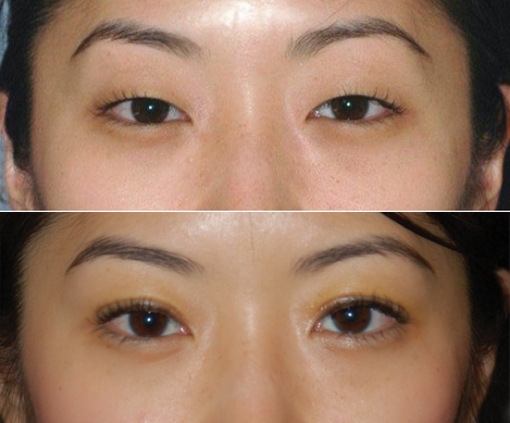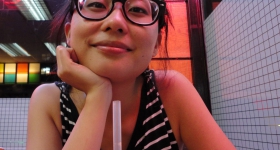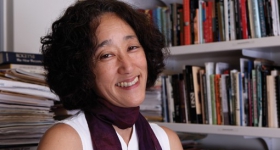Dressed in her Sunday best, Nancy Cabigot — Auntie Nans to family and friends — looks like my 45-year-old sister. She’s actually pushing 60 with 10 grandchildren. She points a finger to her nose with a wink. “This makes a lot of difference,” she said. “Doesn’t it?
Cabigot, a retired marketing manager living in Los Angeles, had rhinoplasty, or nose reshaping surgery, last year. This places her among the 180,000 Asian Americans age 55 and over who went under the knife last year out of 3 million ethnic patients.
According to the American Society of Plastic Surgeons, 743,000 cosmetic surgery procedures were performed on Asians in 2009 with nose reshaping, eyelid surgery and breast augmentation as the most commonly requested enhancements. Asian Americans placed third among minorities undergoing plastic surgeries with African Americans ranking second with 986,000 and Hispanics at the No. 1 spot at 1.5 million.
Drs. Samuel Lam and Edmund Kwan, plastic surgeons who have long served ethnic patients in their own practices, said they have observed a mainstreaming of plastic surgery in the Asian American community. They said more Asian Americans are becoming open to having plastic surgeries and accepting of others who choose to have them.
For Cabigot, surgery was not an impulsive decision. She had been getting Botox for several years and then last year decided on a more drastic change after doing a lot of research and getting recommendations from friends. “I’ve only got a few years in me and I wanted to make sure I’m going to love that permanent change to the very end,” Cabigot said.
Cabigot confided that she has always felt that her nose seemed out of place on her face, that it felt unnatural. But with a strict Filipino American mother and an equally strict husband, she felt stuck. “Back then, you don’t call attention to your flaws by having surgeries done. Plus, you’ll also be accused shamelessly of trying to look white.”Dressed in her Sunday best, Nancy Cabigot — Auntie Nans to family and friends — looks like my 45-year-old sister. She’s actually pushing 60 with 10 grandchildren. She points a finger to her nose with a wink. “This makes a lot of difference,” she said. “Doesn’t it?
Using plastic surgery to look more “white” is a much chewed-over debate within the Asian American community. Carrie Ching, outspoken editor of the now-defunct Monolid magazine — its own name an assertive statement against double-eyelid surgery among Asian American women — has said that peer and parental pressures “to assimilate to white culture” have led many Asian American women to turn to plastic surgery.
“I actually believe that plastic surgery for eyelids is an unfortunate thing, since Asian eyes are so inherently beautiful,” Ching said. “A little surgery here and there is fine, but such huge racial trends are disturbing and a sign of low esteem. I hope Asians can find it in themselves to love their eyes.”
Seventeen-year-old San Jose, CA, native Hanh Phuc Tran struggles with that in the face of a tempting offer: eyelid surgery to be paid in full by her parents and grandparents. Tran said her grandparents, who immigrated to the United States after the end of the Vietnam War, believe their difficulties to assimilate stem from their Asian appearance. Her grandparents and parents have suggested that she get eyelid surgery when she turns 18 in order to fit in and be successful. “My grandparents are worried that some opportunities may not be open to me because of my Asian look,” Tran said.
She remains undecided about whether she will undergo plastic surgery. “I’m sure other girls my age would jump at the chance, especially if your parents or grandparents are willing to pay for it,” she said. “But I don’t think looking a little less Asian and more white can give me a better chance at life.”
Others defend their procedures by denying any desire to look more white. “I didn’t go to a plastic surgeon with the unconscious decision that I wanted to have eyes as big as white people,” said Othello Chu, 30, who had blepharoplasty — or double-eyelid surgery — three years ago. “I went in knowing exactly what I wanted my eyes to look like and why. It’s not a matter of imitating or wanting to be someone else.”
As a sales executive for a Silicon Valley software company — a job that involves meeting face to face with prospective clients — Chu wanted to improve the features of his eyes. “I’m one of those Asians who has the markedly sleepy eyes,” he said. “It didn’t bother me when I was young, but now that I’m in a very competitive job environment, I could use the confidence booster.”
Lam, founder of Lam Facial Plastics, a Dallas cosmetic surgery practice, agrees that Asian Americans, like any other patients, just want to look good. “Let’s not put Asian Americans in a box. We do ourselves a disservice if we assume that every time so-and-so got cosmetic surgery done, he or she wanted to look Caucasian instead of Asian.”
The motivations are varied, Lam said, and tied to emotions and expectations, such as wanting to look good to increase career prospects, to appear younger for romantic success or to simply gain more confidence. Kwan notes that most of his Asian American patients undergo eyelid surgery because single-crease eyelids make them look older; Kwan says those clients simply want to look younger and more bright eyed, not more white.
Lam calls it “ethnic softening”: “It means softening of facial features — narrow eyelids, flat nose bridges, wide jaws that patients deemed overly ethnic but still preserving their ethnicities. They’re still 100 percent Asian in appearance. But their strong ethnic features have been softened so they’re no longer too dominant on their faces.”
Kwan believes that Asian Americans are moving toward procedures that preserve their ethnic identity as a result of demographic changes in American society. “The appearance of Asians in America were considered a novelty 40 years or so ago, so many were striving to change their appearance to integrate better in a predominantly Caucasian society,” Kwan said. “Hence, the stigma that if you go to a plastic surgeon to change something, you’re immediately thought of as wanting to be another race. But in this modern and diversified society, I’m seeing more and more Asian Americans, young and old alike, wanting to have surgeries done that don’t stray far from their ethnic features.”
Perhaps this is why practitioners now offer procedures specifically marketed to ethnic patients. A quick Web search yielded practices that offer “Asian cosmetic plastic surgery” among their services. “It isn’t that Asian Americans are not having other surgeries done, such as liposuction, tummy tucks or facelifts,” Kwan said. “It’s just that procedures such as eyelid surgery, nose shaping, jaw reductions and breast augmentation have become popular among them.”
Both Lam and Kwan believe the “softened” look in plastic surgery is becoming popular among Asian Americans, but at the same time, it’s not unique to them; even white patients strive for more natural-looking results. “Gone are artificial-looking surgeries: the very high noses, overexaggerated lips or alien-looking eyes of the ’80s,” Lam said. “There are also fewer barriers between races that the standard cookie-cutter look is no longer the norm. Patients are aspiring to enhance ethnic looks that reflect mixed cultural heritage and globalization.”
Asian Americans are becoming more willing to work with their ethnic features rather than work against them, Kwan said. “My patients want a more balanced-looking face. Make the individual parts of their face like their protruding mouths, jutting teeth, narrow eyes or wide jaws look attractively proportional. Seldom do I encounter ethnic patients who want major alterations to their faces.”
Chu wanted his eyelid surgery to look as normal as possible. “I know people will notice the difference in the way my eyes look after the surgery. But I didn’t want it to look like I’ve done something fake. I wanted to feel that these are what my eyes would look like if I’ve been lucky enough to be born with them.”
Cabigot felt the same way with her nose job. She made sure that her nose didn’t look artificial. She worked closely with her surgeon to achieve a look that would enhance her face rather than call attention to her reconstructed nose. “The best compliment I’ve received after my surgery is from people who noticed how youthful I look, but didn’t notice I’ve had surgery done. The look on their faces when I tell them is priceless.”
Korean American Charlotte Suh, 22, a college student from San Francisco, is contemplating plastic surgery. “I’m thinking of having my jaws reduced or maybe a facial contouring after graduation. And no, I don’t want a Hollywood celebrity’s nose or a Korean idol’s jaw. I still want to be me with a little bit of enhancements to my look.”
Suh scoffed at the suggestion that she wanted non-Asian features. “How come Asians in Asia are not being accused of this? In Korea alone, cosmetic surgery is as common as having your teeth straightened. It’s only here that we get condemned by people in our own community for wanting to improve our features. Does it have to be a racial question, too?”
Jennifer Bagalawis-Simes is a San Jose-based freelance writer. She last wrote about sustainable seafood consumption for Hyphen.

Double eyelid surgery before, top, and after. (Photo courtesy of Charles S. Lee/Asiancosmeticsurgery.com)









Comments